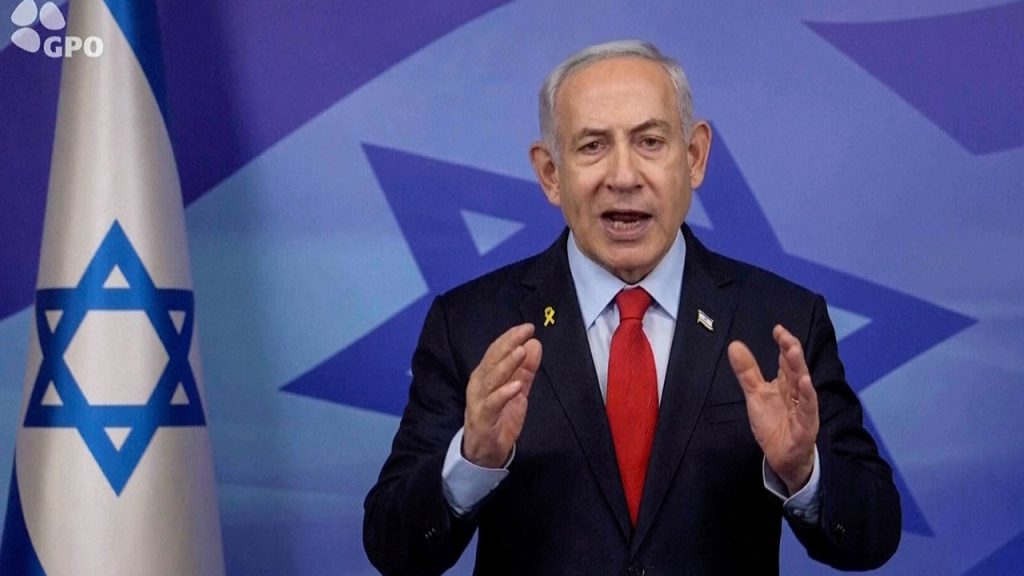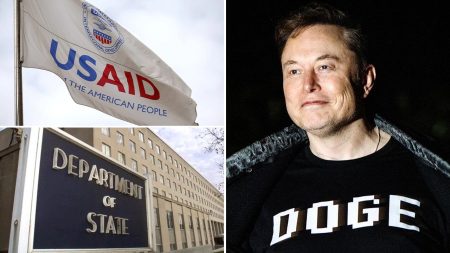Israeli Prime Minister Benjamin Netanyahu’s declaration regarding the fall of Bashar al-Assad’s regime as a direct consequence of Israeli actions against Iran and Hezbollah requires a nuanced examination. While Israel undoubtedly played a role in the regional dynamics that contributed to the Syrian conflict, attributing Assad’s downfall solely to Israeli actions oversimplifies a complex interplay of factors. The Syrian uprising, rooted in domestic grievances against Assad’s authoritarian rule, evolved into a multifaceted civil war involving various regional and international actors. While Israeli strikes against Iranian and Hezbollah targets within Syria aimed to curb their influence and military capabilities, the conflict’s trajectory was shaped by a multitude of forces, including internal rebel factions, foreign interventions, and the rise of extremist groups like ISIS.
Netanyahu’s assertion of a cause-and-effect relationship between Israeli operations and Assad’s downfall serves a political purpose, projecting an image of strength and decisive action to both domestic and international audiences. By highlighting Israel’s role in destabilizing Assad, Netanyahu aims to underscore Israel’s security concerns related to Iranian and Hezbollah presence in Syria, justifying continued Israeli intervention. Moreover, portraying the regime’s collapse as a consequence of Israeli strategy enhances Netanyahu’s image as a strong leader effectively safeguarding Israeli interests. However, the complex realities of the Syrian conflict, driven by a confluence of factors beyond Israel’s sole influence, warrant a more cautious assessment of Netanyahu’s claim.
The Israeli Prime Minister’s subsequent actions and pronouncements reflect a pragmatic approach to the evolving situation in Syria. Recognizing the potential security vacuum resulting from the Syrian regime’s weakening control, particularly along the Golan Heights, Israeli forces moved to secure abandoned Syrian army positions. This move, aimed at preventing hostile forces from establishing a presence near the Israeli border, underscores Israel’s prioritization of immediate security concerns. Netanyahu’s simultaneous offer of peace to various groups within Syria, including Druze, Kurds, Christians, and Muslims, demonstrates a strategic effort to cultivate potential allies in a post-Assad Syria and shape the future regional landscape to Israel’s advantage.
The collapse of the 1974 Separation of Forces Agreement between Israel and Syria, a direct consequence of the Syrian army abandoning its positions along the Golan Heights, presents both challenges and opportunities for Israel. The agreement, which had maintained relative stability in the region for decades, was effectively rendered null and void. This development necessitates Israel’s proactive measures to safeguard its border security and prevent the area from becoming a haven for hostile actors. Simultaneously, it opens the possibility for renegotiating the border arrangements with any new power structure emerging in Syria, potentially offering a chance to solidify Israel’s control over the Golan Heights.
Netanyahu’s extension of a “hand of peace” to various Syrian groups, particularly those with a history of relatively peaceful coexistence with Israel, is a calculated move to foster alliances in a potentially fragmented and volatile post-Assad Syria. By engaging with these groups, Israel seeks to establish a network of friendly actors who can serve as a buffer against hostile elements and contribute to regional stability aligned with Israeli interests. This strategy acknowledges the unpredictable nature of the unfolding events in Syria and aims to position Israel advantageously in the evolving regional power dynamics.
While Netanyahu’s rhetoric emphasizes the positive outcomes of Assad’s downfall from an Israeli perspective, the situation remains fraught with uncertainty and potential dangers. The emergence of extremist groups in the Syrian power vacuum poses a significant threat to regional stability and could lead to increased violence and instability along Israel’s borders. The complex interrelationships between various actors in the Syrian conflict, including Iran, Russia, and Turkey, further complicate the situation, making predicting the future trajectory of events a challenging endeavor. Israel’s response must navigate these complexities while safeguarding its security interests and potentially reshaping the regional balance of power.










